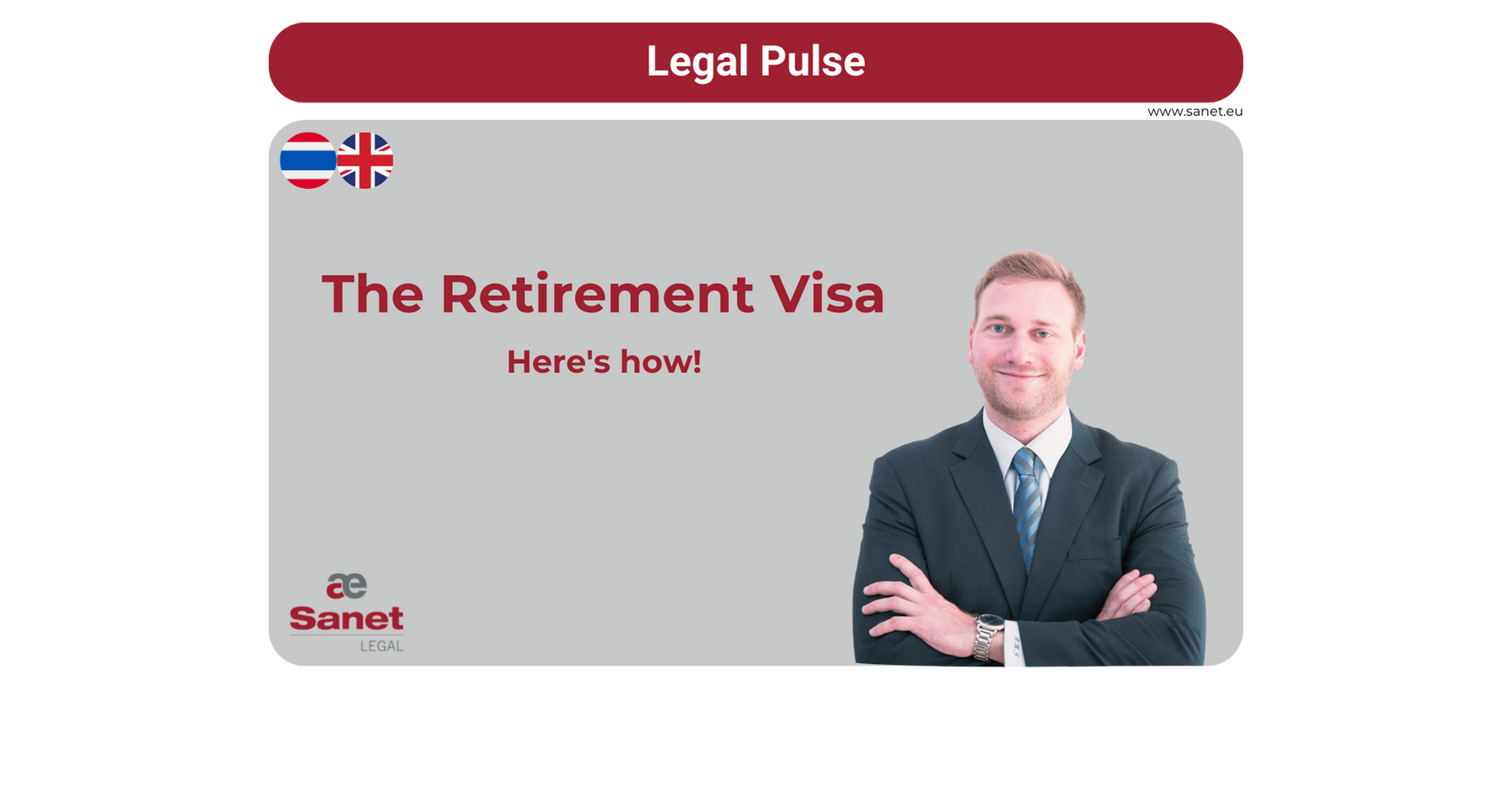Many people dream of moving to Thailand once they retire. There are a few things to take care of before that can be done. One of the most essential steps in doing this is to make the right application for a retirement visa for Thailand.
Getting a retirement Visa in Thailand is fairly easy once all the correct documents have been submitted to the competent Embassy. However, there are a few requirements that could cause problems for some applicants.
The financial aspects of the Visas aside, there are some alluring sides to holding a retirement Visa in Thailand, multiple-entry travel and Visa extensions only once a year to name a few.
There are two options for retirees to choose from when they apply for a Visa. The first one is the Non-immigrant Visa OA (OA long stay), and the second one is the extension of the Non-immigrant Visa O.
The Visas are mostly similar. One of the differences being that the holder of the OA long stay is immediately allowed to stay in Thailand for a year, and the holder of the Non-immigrant O is allowed to stay for 90 days, after which the Visa could be extended, consequently converting the Visa to a retirement Visa.
For the Non-Immigrant O Retirement Visa, the Embassy may require a pension certificate, as this is reserved exclusively for retirees.
Wealthy seniors should take a look at the 10-year Long Term Resident Visa.
The main requirements for the retirement Visas are that the applicant must be 50 years old and above, hold a valid passport, have proof of funds lasting for the whole duration of the stay in Thailand, and have sufficient health insurance.
It should be noted that any kind of work is strictly prohibited when holding a retirement Visa.
Sufficient financial resources
The biggest difficulties in obtaining a retirement Visa might be the financial requirements. There are a few options on how to prove the availability of funds.
Firstly, the applicant could show that they have at least an amount of THB 800,000 in their bank account. Secondly, there is the option of showing proof of monthly income, usually pension, of at least THB 65,000 from a foreign source.
Lastly, the combination of the two options above could be demonstrated, with the money in the bank account and a year’s worth of the monthly foreign income amounting to at least THB 800,000. These aforementioned amounts are the ones usually required from applicants, but some embassies may set out different requirements, so retirees wanting to apply for a Visa should confirm them with the Embassy in their home country.
Proof of health insurance
Another more complicated aspect of the application process is the requirement of health insurance for the duration of the stay.
Regarding the OA long stay, the requirement in question was amended in October 2021 and is now stricter than before. Nowadays, the applicants need to show that they have adequate health insurance for their entire stay, the coverage being not less than THB 3,000,000 or $100,000, also covering the medical expenses in the case of Covid-19.
For Non-Immigrant O Visas, the coverage amount is currently (still) 40,000 outpatient and 400,000 THB inpatient.
No visa with criminal record and drug addiction
In addition, the applicant must not have a criminal record in Thailand or in his or her country of citizenship or residence, and must not have any “prohibitive diseases” such as leprosy, tuberculosis, drug addiction, elephantiasis, or third stage syphilis.
Entry and registration requirements
Once the Visa application gets accepted, the holder of the Visa needs to enter Thailand within 90 days of the issuance of the document. The validity period starts on the day of entering the country. One of the requirements of the OA long stay Visa, or the year-long Non-immigrant O Visa extension is that the holder of the Visa needs to report to an Immigration office in Thailand every 90 days in person.
After the initial year, the Visas can be renewed in one-year long periods. The abovementioned requirements apply to the renewal as well.
Pros and cons of the retirement visas
The process of applying for the Visa is pretty straightforward, but is it worth it?
There are a few downsides to the Visas, the strict financial conditions being one of them. Fulfilling the requirements can be challenging for some pensioners, and especially if the Thai Baht gets stronger compared to other currencies, it could get almost impossible to reach the minimum financial requirements. Furthermore, with the health insurance added on top of the fund requirements, the amounts of retirees able to apply for the Visa could decrease. The possibly challenging situation with the funds is also worsened by the fact that employment is prohibited whilst holding a retirement Visa.
Advantage: Multiple entry, extension in the country and account opening
Despite the challenges, there are several benefits in holding a long stay Visa in Thailand. One of them is multiple-entry travel to Thailand, which is allowed and automatically included in the OA long stay, or possible to add to the Non-immigrant O. Usually Visa holders are granted a single entry to Thailand, which means that they can only enter the country once, and if they want to leave and come back, they need to visit the Immigration office and buy a multiple-entry for their Visa. The retirement Visa is an exception to this and makes it more appealing to the public.
Additionally, holding a retirement Visa simplifies the process of opening a bank account in Thailand. Having a bank account in the country of residence eases daily life and helps when dealing with the proof of funds needed for Visa extensions. The validity period of a retirement Visa is also a benefit because the document only needs to be renewed once a year. Moreover, the renewal process can be done in Thailand, so the pensioners do not necessarily need to leave the country.
What is the best option for a Retirement Visa in Thailand?
Which one of the Visas should a retiree apply for then? There is no definitive answer to this question, but there are some factors that can help the applicant to make a decision.
As mentioned above, one of the biggest and only differences between the Visas is that OA long stay allows the Visa holder to automatically stay in Thailand for one year from the date of the issuance. Whereas, Non-immigrant O allows the holder to stay for 90 days, after which the holder needs to apply for an extension of the Visa at an Immigration office in Thailand if they want to continue their stay. This causes the process to be more bureaucratic and complicated than the process for obtaining an OA long stay.
Currently, another difference between the Visas is the required coverage of health insurance. For OA long stay, the amount of THB 3,000,000 is considerably higher than the amounts required for Non-immigrant O, which are THB 40,000 for outpatient cover and THB 400,000 for inpatient cover. However, the requirements have recently been changed in some countries, and some embassies require the applicants of non-immigrant O to have a health insurance covering the same amount of medical expenses as the applicants of OA long stay. In the future, the health insurance requirements could be the same for both Visa types.
Easy visa solution for retirees
To summarize, people over the age of 50 can obtain a long-term visa to Thailand relatively straightforwardly. Whether the Non-Imm OA (Long Stay) or the extended Non-Imm O Retirement is the better choice depends on personal preference and the amount of coverage provided by your health insurance. For those who have reached the minimum age and have the required pension, both visa options are a good solution for a long-term stay in Thailand.
The attorneys at Sanet Legal, the Western-minded law firm, can also advise you on the best visa for you and assist you with the application process.



